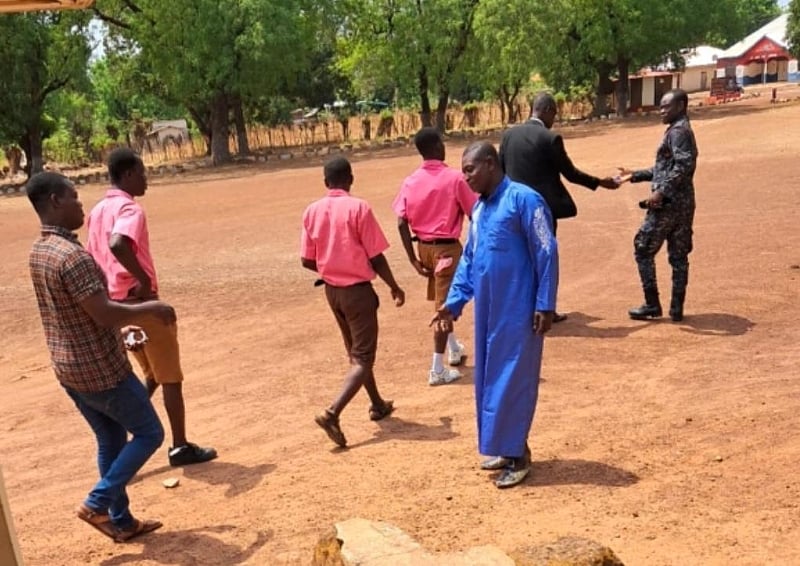The Salaga Magistrate Court has delivered its verdict in the case involving three students of Salaga Senior High School (SHS) who were implicated in a violent disturbance that disrupted the school a week prior. His Lordship Edward Essel, presiding over the case, imposed a non-custodial sentence on the three students, Nuru Ibrahim, Abubakari Zaidu, and Hardi Hamza, all aged 19. Each of them was fined 160 penalty units, equivalent to GHS 1,200.00, with the alternative of serving a six-month prison term if they failed to pay the fine. In addition to the fine, Hardi Hamza was ordered to pay GHS 500.00 as compensation to a student who sustained injuries during the clash. The court also mandated all three convicts to sign a bond of good behavior, committing them to maintain peaceful conduct for a period of 12 months. All three pleaded guilty to the charges leveled against them, which included possession of a firearm and ammunition without authorization, issuing death threats, and causing harm.
The incident that led to these legal proceedings involved a clash between students at Salaga Senior High School, located in the East Gonja Municipality of the Savannah Region. The Salaga Divisional Police Command initially arrested 20 students in connection with the disturbance, which resulted in injuries to one student. A locally manufactured pistol was recovered from one of the apprehended students. Following investigations, 17 of the arrested students were granted bail, while the remaining three, Nuru Ibrahim, Abubakari Zaidu, and Hardi Hamza, were subsequently charged and convicted.
The sentencing marks the conclusion of the legal process following the violent incident at Salaga SHS. The court’s decision to impose a non-custodial sentence, coupled with the requirement for good behavior, aims to hold the students accountable for their actions while allowing them to avoid imprisonment. The additional compensation ordered for Hardi Hamza underscores the court’s recognition of the harm caused to the injured student. The incident highlights the importance of maintaining a safe and peaceful learning environment within educational institutions.
The school administration will likely need to implement measures to prevent similar incidents from occurring in the future. These measures may include reinforcing disciplinary policies, providing conflict resolution training, and enhancing security measures on campus. Furthermore, the incident underscores the need for ongoing dialogue and cooperation between the school administration, students, parents, and law enforcement agencies to address underlying issues that may contribute to student unrest. Open communication and collaborative efforts can help create a more positive and secure school environment for all stakeholders.
The broader community can also play a role in fostering a culture of peace and respect among young people. Community leaders, religious organizations, and youth groups can organize programs and initiatives that promote positive values, conflict resolution skills, and responsible behavior. These efforts can complement the school’s efforts to create a safer and more conducive learning environment. By working together, the school and the community can help ensure the well-being and academic success of all students.
The case of the Salaga SHS students serves as a reminder of the potential consequences of engaging in violent behavior. It also highlights the importance of addressing conflict through peaceful and constructive means. By learning from this incident, schools and communities can work together to prevent future occurrences and create a more positive and supportive environment for all students. The focus should be on fostering a culture of respect, responsibility, and peaceful conflict resolution, ensuring that schools remain safe spaces for learning and growth.


